#452 – Emmy Contending Editors Talk (Extended Edition)
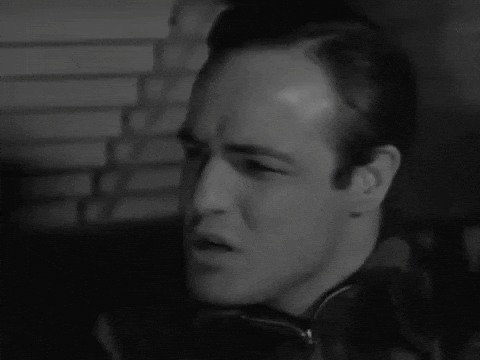
It's that time of year again when the Emmy nominations are up for consideration.
If you're eligible for either a nomination or to vote, then I'm sure you've already been researching what might be the most worthy shows this time around.
If (like me) you're not eligible to participate, hopefully, you've been watching some of this fine editorial craftsmanship with enough focus to be inspired in your own cutting.
In this extended edition of #452 – Emmy Contending Editors Talk, you can enjoy an unedited download of all of the editing wisdom shared by our four fine interviewees.
All of whom are contenders for an Emmy nomination!
But before we dive in, I have a question for you...
My favourite takeaways
Pace is everything. Pace and performance supersede continuity and shot choice.
There's a rhythm to the dialogue that needs to be honored even if it means breaking some rules. Learning how to hide it when you break the rules is the secret we have to master.
— Matthew Barbato
Plus, Matthew shares a ton of great tips in his answer to the first question below...
Experiment against instinct
Once the scene has shape, I leave it for an hour or so and look over the assemblies from the day before, then return back to the scene to see if it's a total car crash or somehow the foundations of where to begin.
Next I’ll likely roll around in different performances against my initial instincts, sometimes this unravels an alternative approach and other times it doesn’t.
— Yan Miles
There's no science to funny
Timing is essential in all genres: drama, documentaries, everything. But I’ve found that when I cut comedy, it’s really the cornerstone.
One frame off here or there can really ruin or make a joke. Staying on something too long can feel like you’re begging for a laugh, but also, sometimes, that linger can add an awkwardness that makes it even funnier.
It’s not a science at all; you really have to try things out to see where the biggest laugh is.
– Todd Downing, ACE
How to get hired
If someone is passionate about our craft, that will shine through above the rest.
When I’m hiring an assistant editor, I’m looking for a creative collaborator and someone who is passionate about the story.
Let that be the guiding light for a career, and it will be a success.
– Amelia Allwarden, ACE
Andor Season 2 – Yan Miles
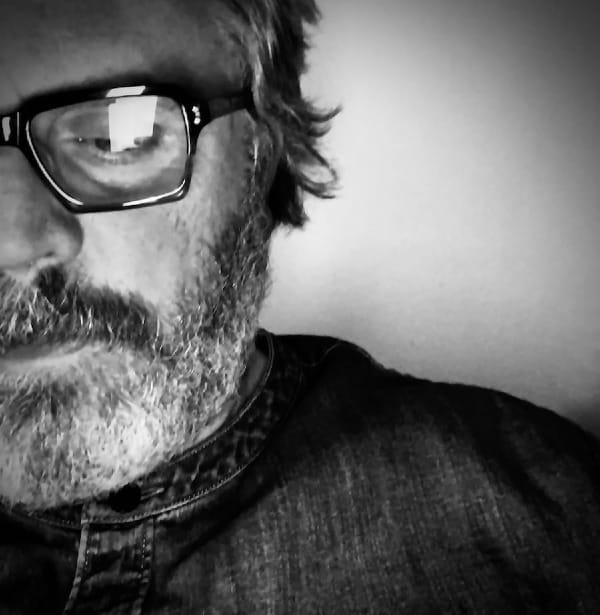
Yan Miles is no stranger to the Emmy's with two awards under his belt already for his work on The Crown and Sherlock, alongside other highly acclaimed TV series such as Game of Thrones, White Lines and Rome.
He's also edited a trio of feature films: Sharper, William Tell and Oasis.
Having cut the concluding two episodes of Andor season 1, Yan was back to cut three episodes (ep 7, 8, 9) of the second, and final, season.
What aspect of working on Andor are you most proud of - even if no one else might notice?
I’m proud of all aspects of working on Andor, especially my A team in the cutting rooms - Lincoln, Marta, and Miguel. They were my very own rebellion!
As for another aspect I’m hugely proud of;
During one particular moment in the midst of the Assembly and shoot of episode 208, “Who are you?" I felt we needed to delay Wilmon's attempt to find Cassian after he arrives at the Ghorman Plaza with Dreena.
I visited the set to explain my thoughts to Janus (Director), who then promptly suggested that I shoot the scene the following day with a splinter unit of only one camera, Mo, the actor who plays Wilmon, and a dozen Gorman extras!
It’s not every day you get to shoot a very small part of Star Wars, and, luckily for me, it did solve the story of Cassian and Wilmon searching for one another.
What was the biggest challenge you faced on the show, and how did you overcome it?
In episode 208, which predominantly takes place inside the Ghorman Plaza, I recognised the challenge of maintaining a seamless flow of characters within this particular thread of story. All whilst they circle the protest. Keeping a taught foreboding feeling as the truth slowly unravels.
To aid this, I visited the production office pre-shoot to meet the members of the production design department and request a technical drawing of a top-view set build of the Plaza.
They provided me with one, which I used as a mental map to comprehend the entry points for characters, the columns where Cassian would seek shelter and spot Dedra, the path Syril would enter and exit the ISB building, where the cadets journeyed down the barriers and where the sniper was hidden and so on.
This bird's eye view served as my guiding principle, and I updated each character’s movements using coloured pens on a daily basis.
While the process got super messy by the time the massacre erupted, it became my indispensable reference.
You've cut both feature films and top-tier TV - what skills have you learned on one that has helped you on the other?
(Or it doesn't matter, it's all editing, even if the format/structure is different and there are different storytelling requirements!)
That’s an interesting question, and to a large degree, yes it’s all editing.
TV has elevated to a special place in recent years, with many great feature filmmakers crossing over from film to TV and vice versa. As a result, we’ve seen the quality of productions elevate massively.
As for the differences in the discipline of editing between the two mediums?
TV definitely has more time for character development, whereas film has more patience and scope for silence, in my opinion.
I’ve learnt lots from television, like re-framing which character should have a certain POV more than other characters in scenes. Taking out characters or even removing whole storylines.
Conversely, in feature film editing, I’ve honed the craft of creating montages to change the pacing and they can also provide a mechanism to help lose some duration.
That said, I always say that really good TV is akin to film.
With Andor Season 2, for example, I cut a block of three episodes in the same time period. In theory, you could string eps 207, 208, and 209 together and it would play like a film.
Tony Gilroy and his team write this way - no gaps and no wasted scenes.
Laser focused.
What’s your daily work routine?
After a strong coffee, I sit down to watch dailies with my Assistants.
Whilst viewing, I tend to think/ feel my way through some notes I may scribble down, but mostly, some visual/narrative formation takes place.
I ask questions of opinion with the gang and if a scene is complete I assemble it together pretty quickly not worrying too much about where it’s heading.
Once the scene has shape, I leave it for an hour or so and look over the assemblies from the day before, then return back to the scene to see if it's a total car crash or somehow the foundations of where to begin.
Next I’ll likely roll around in different performances against my initial instincts, sometimes this unravels an alternative approach and other times it doesn’t.
The next day, I’ll do it all again, and now this scene informs today and so on and so forth.
Alongside this, having talked to the director regularly, I see what their intentions are in the takes and setups. You have continuity notes, of course, but I like finding the threads via the footage and the conversations together.
What do you now know about your work that you wish you’d known when you first started?
To spend more time away from the screens and more time talking with other editors.
What did your biggest professional failure teach you?
It’s not personal.
What’s the #1 thing that has helped you shorten your craft’s learning curve?
To listen to everyone in the room. Everyone.
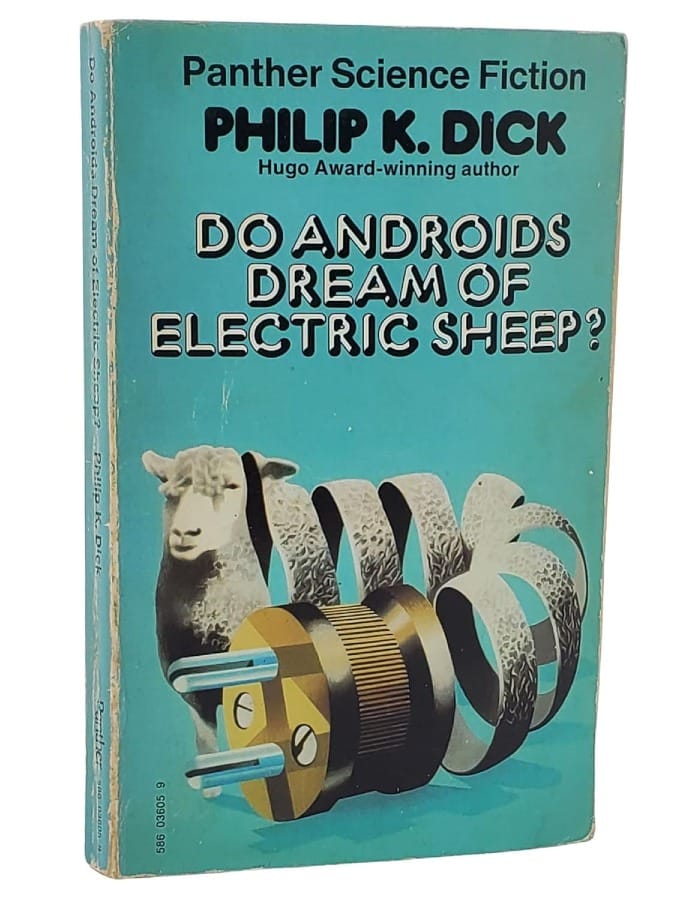
What book has helped you the most over your career?
That’s a tough question, that’s like asking someone what their favourite film is.
Maybe Do Androids Dream of Electric Sheep? The sheer imagination involved!
And anything you write on your brilliant website and blogs!
[Editor's note: Inconceivable.]
And your parting piece of advice?
Listen, trust your instincts, listen again.
Walk lots around the cutting room and love what you do.
Helps it all make sense.
Only Murders In The Building: Season 4 – Editor Matthew Barbato
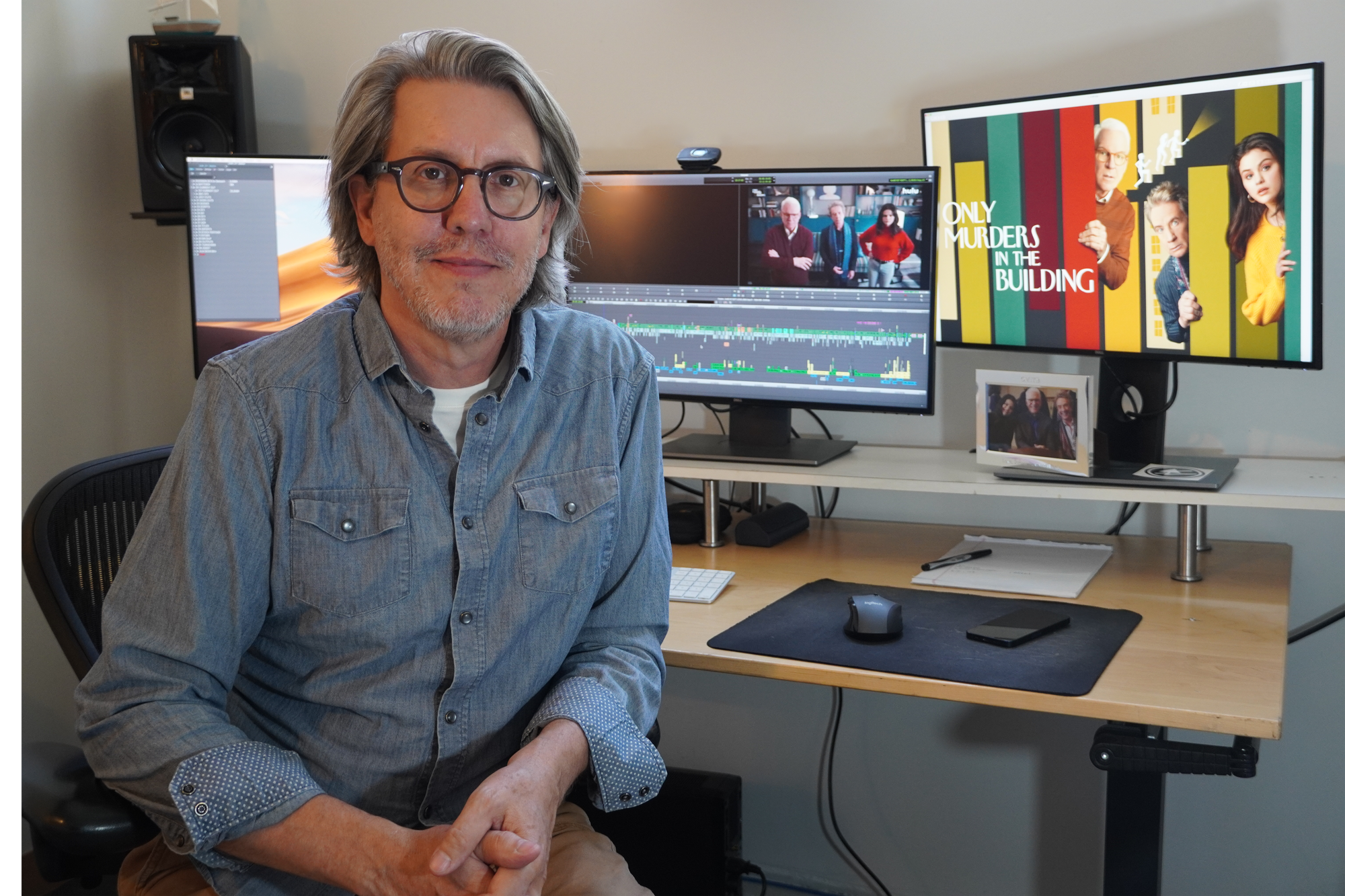
I've enjoyed all four seasons of Only Murders in the Building, partly because it's a rare breed of show that my wife and I can actually enjoy together.
Editor Matthew Barbato cut three episodes of season 1 (ep 3, 6, 9) and three episodes of season 4 (ep 3, 6, 9) while his previous credits are a roster of top comedy shows, including:
- Lessons in Chemistry
- Dave
- High Fidelity
- Veep
- The Kominsky Method
- The Good Place
What aspect of working on Only Murders are you most proud of - even if no one else might notice?
‘Not noticing’ is a goal of successful editing, so my hope is that no one ever says, “That episode had really great editing” – everyone should just enjoy the episode.
However, besides cutting a really precise comedic scene like the ‘spit take’ scene between Charles, Eugene, and Vince in episode 403, the things I'm most proud of on this show are lines we removed to make the scene work better and the moments that we manufacture because we discover a need in Post to patch a hole in the storytelling.
Anytime we get to contribute, solve a problem, or add something that wasn't intended, is extremely gratifying.
Episode 406 BlowUp was an episode where there's a lot more editing involved than meets the eye. Told as a found-footage documentary, many of the scenes are meant to be experienced as single shots to give the audience a feeling of immediacy and urgency.
But there are no true 'oners' in the episode, and in fact, even the static camera scenes have invisible jump cuts in them to adjust pacing. The episode was shot very inventively by our fantastic director Jessica Yu and DP Kyle Wullschlegger, but unlike other episodes, they left a lot of choices to the editing room such as scene transitions, cutting style, etc.
The episode contains a handful of 'mini-films' created by the Brothers Sisters that each had their own avant garde editing style, so it was fun to relive my own pretentious early days to find ways to embody the Brothers Sisters style.
Once the documentary catches up with current events, the challenge was to find ways to adjust pacing when there's limited coverage. We did that with a lot of hidden edits to make the film feel raw and unedited, while also editing as much as we could get away with.
For instance, the early scene in the cab is made of two takes, joined by creating a fake rack focus in the middle.
The other big element we used to control pacing was sound. Originally Howard was in most of the scenes, silently operating the camera we're viewing events from, but he provided us with a great opportunity to comment and react to the events that really helped fill in pauses and add comedy that wasn't originally there.
We filled out the soundtrack as much as we could.
There's another moment when the drone falls out of the sky into the courtyard and in the silence that came next, we added Uma (our grouchiest neighbor) yelling profanities from below, and that added an extra joke that really caps the scene.
Lastly, I was able to add little jokes with the use of chyrons and watermarks that both helped subtly lead the audience and hopefully provide some easter eggs.
What was the biggest challenge you faced on the show, and how did you overcome it?
The biggest challenge on Only Murders is balancing how the comedy, murder plot and dramatic character elements work together while making everything feel like it is truthful and belongs to the Only Murders world.
For instance, in the last act of episode 409, we needed to take a lot of comedy lines out of the conversation between Charles, Oliver and Ron Howard. At that point in the episode we need to create tension as we built to our climatic reveal.
As scripted, the buildup kept getting distracted by unnecessary, although funny, comedy bits. We removed all sorts of jokes about the photos on Ron Howard's phone (e.g. he had a photo of himself at the Oscars next to a photo of Oscar Isaacs) in order to keep the conversation focused on the investigation.
By trimming these lines, I think we achieved a better climatic reveal.
Similarly, there's an earlier scene in the same episode where Charles is getting very angry and upset with Oliver and eventually blows up at him. We needed to feel Charles' anger in order to understand what was going on with Charles, but the scene ended on a joke from Oliver about his ‘anatomically correct’ motion capture suit, but with the joke in the scene it completely let the air of Charles' anger, so we needed to trim the comedy.
What aspect of editing comedy do you think most other editors don't understand/underestimate?
Pace is everything. Pace and performance supersede continuity and shot choice.
There's a rhythm to the dialogue that needs to be honored even if it means breaking some rules. Learning how to hide it when you break the rules is the secret we have to master.
Another thing that makes comedy editing very particular is that it's so subjective.
In drama, thriller, horror, etc. most people will respond similarly to moments of fear, anger, and sadness, but what makes someone laugh is very idiosyncratic, so it always comes down to instinct, and you will never please everyone.
What's your daily work routine?
We get new footage sent to us the day after it was shot and my assistant brings it into the Avid and starts to organize the shots into bins. I'll often help out with the scripting as a way to get familiar with the footage.
I will then start creating Stringouts (Stacks) of the scene (grouping all the lines so I can see all the takes of the same line), then I'll trim the Stringout into Selects.
I'll often put scenes aside at that point and return to them fresh the next day at which point I assemble the scenes pretty quickly.
Then I let them sit while I work on other things and come back a day or two later and watch the scenes fresh again and start to refine and tweak and fix any narrative issues that might pop up.
Somehow bouncing around to different scenes works for me and I'm always a little surprised when it all comes together at the end.
What do you now know about your work that you wish you'd known when you first started?
Early in my career, when I was working on lower budget shows with tighter schedules, I naively imagined a point in the future where I would work on projects that were perfectly conceived and executed to the point that the editing process would be about choosing between handfuls of great choices.
But of course that's never the case and it's not supposed to be.
The post process is part of the larger goal of creating and shaping the story and even the most talented writers and directors don't always get what they need during shooting and even the most perfectly executed shooting process reveals issues and opportunities that no one can predict.
And of course solving problems and looking at the footage in new ways is the fun part of editing. It's where you get to elevate the material and contribute the most.
What did your biggest professional failure teach you?
That you can't fix everything and you can't please everyone, and that's ok.
What's the #1 thing that has helped you shorten your craft's learning curve?
It was important for me to learn to not get defensive and to be open to all feedback.
It doesn't mean the feedback is always correct or that you should blindly follow it, but sometimes it is correct and sometimes it points to another issue that needs addressing.
What book has helped you the most over your career?
Walter Murch's In The Blink of an Eye is of course a classic.
There's so much on the internet now in terms of video essays and craft websites. I really wish that all existed when I was coming up.
And your parting piece of advice?
There are a few pieces of advice I like to share.
First, if you know what kind of work you most want to do, whether it's film vs. TV or comedy vs. drama, try and get your start on those projects as soon as you can because as time goes on, it gets harder to switch between genres and formats.
Plus, early in your career you have the most flexibility to make the sacrifices and compromises it may take to hold out for the kind of jobs you want to pursue. That said, all experience is useful and you never know what may lead you to your goals.
Also, remember that as editors, it's our job to craft the best out of what we are given.
That requires looking at the footage with fresh eyes, solving issues and thinking outside of the box for ways to make the footage tell the story in the best way possible.
Lastly, trust your instincts and don't try to second guess what your director or producer may want.
It's your job to bring your skills and instincts to the material, offer something that may not have been envisioned and THEN collaborate with your directors/producers to execute their vision.
Overcompensating – Editors Amelia Allwarden, ACE & Todd Downing, ACE
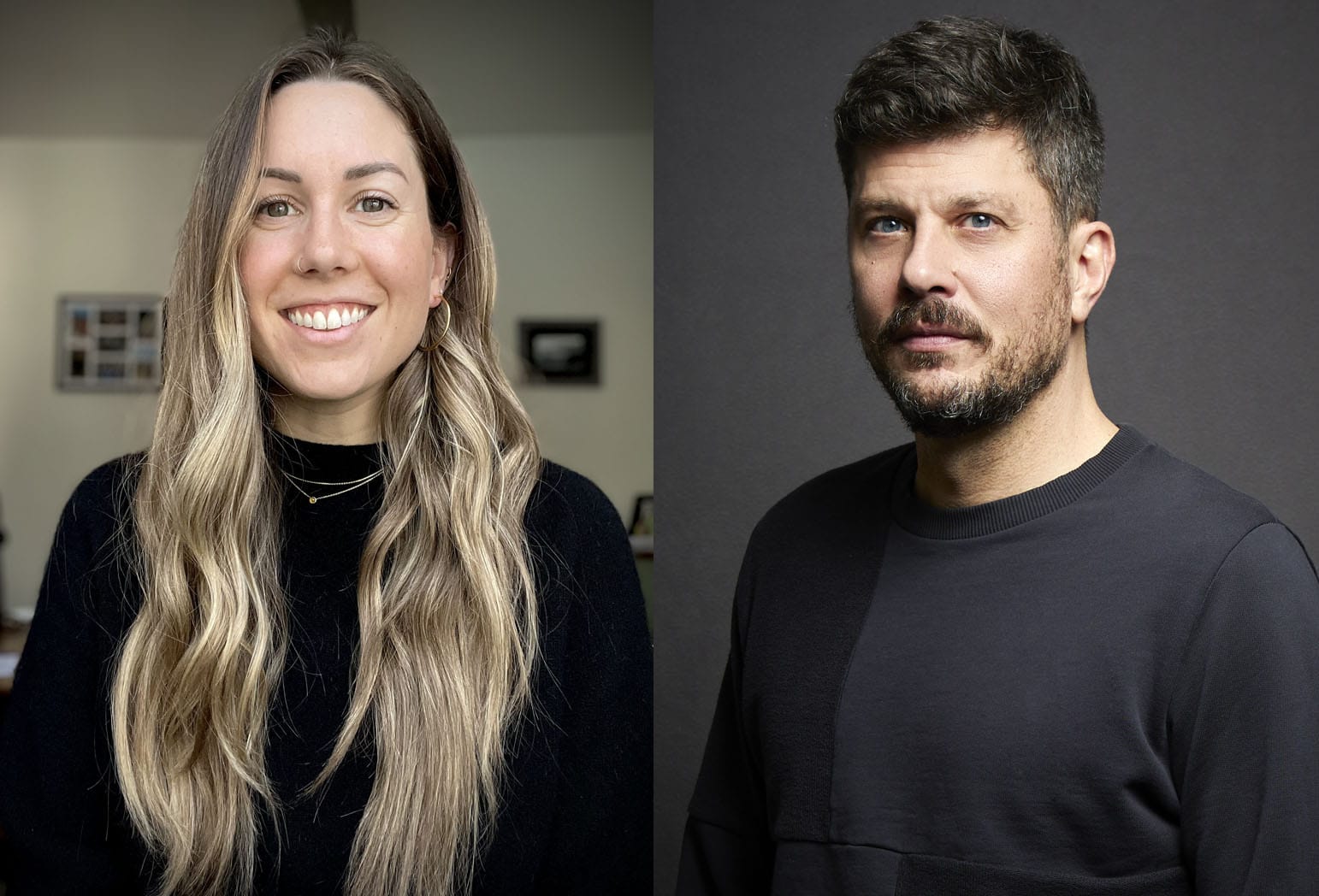
Amazon Prime's new MA-rated comedy, Overcompensating, looks like a hectic ride with a lot of editorial hairpins to navigate.
Thankfully we've got two of the shows editors, Amelia Allwarden, ACE and Todd Downing, ACE to guide us through it.
Amelia was also interviewed as part of a previous ‘extended edition’, last time as a member of Dune Prophecy's quartet of editors. Quite a different show!
Amelia's previous credits include:
- Dune Prophecy
- Sunny
- Westworld
- Little Fires Everywhere
Todd Downing, ACE, has an eclectic mix of credits to his name, including some of the UK's biggest factual shows (Dispatches, Panorama, This World) as well as editing for Frontline in the US.
Plus 16 episodes of Difficult People, 11 episodes of Russian Doll, and cut Clipped and Hello Tomorrow!
It seems like he can handle it all!
What aspect of working on Overcompensating are you most proud of - even if no one else might notice?
AA: What I'm most proud of in editing Overcompensating is how we weaved the comedy and the real human emotional drama together.
There are some ridiculous moments in the show, which I think are amazing, and there are some downright funny moments, as well as some really emotional moments.
I think as editors, we have the luxury of being able to play with dialing up and down each of those pieces within the show. I'm proud of how it came out because I feel like overall, people will say the show is a really fun time, but I think some people will be surprised at how emotional they will feel at times when the story goes on.
For example, in the scene at the end of episode 2, Benny and Carmen are sitting outside of Domino's, eating pizza. I’m incredibly proud of this scene because of how it weaves between fun bantery moments and then moments of real emotional intensity. I played with the places where I would let a 2-shot play out vs cutting between the singles to create this balance.
TD: I’m really proud of how stylish we were allowed to make it. Scott King (the Showrunner) and Benny (Benito Skinner) both really encouraged these stylized moments as long as they felt like they weren’t superfluous.
So we were able to play with flashbacks, split screens, and flashes to interior dialogue that give the show a distinct feel and I really got to flex my creative muscles with both image and sound.
Probably my favorite super-stylized scene to cut was in the pilot, where Benny is trying to get hard in the bathroom, and all sorts of things are going through his head.
He’s jerking off, Carmen is encouraging him to “get it up”, he ends up in an improv group, and then, on top of it all, he appears in a scene from George of the Jungle. All this happens in less than a minute.
I think it’s a moment that really shows how editing can tell stories abstractly through imagery in a way that words can’t.
What was the biggest challenge you faced on the show, and how did you overcome it?
AA: One of the fun challenges we faced on the show was figuring out the tone of the score.
When we were putting it together, we had an amazing music team: Charli, XCX, The Japanese House, and Alex Somers, with whom we all collaborated with.
But in terms of editing the temp score for the editorial cuts, it was really about striking a balance - not being too sitcom-y, but also not being too serious. I think the show has a really unique tone that sits somewhere in the middle.
It was an exciting challenge to figure out, because each scene might need an entirely different piece of score than the last.
In one scene in episode 2, I’m scoring the bros ripping their shirts off to the “Monday Night Football” theme, and in the end of the episode in the Domino’s scene we’re scoring with sparse beautiful vocals from Charli.
It’s a fun juxtaposition.
TD: It was the same on Overcompensating as it is for any show: the pilot.
To be even more specific, the first ten minutes of the pilot.
We worked on that for months to get it right. The show is an ensemble, so we’re introducing tons of characters in a very short amount of time: Young Benny, College Benny, Benny’s mom and Dad, Benny’s sister Grace, Carmen, Hailee, Peter, and a bunch of supporting characters as well.
It was tough to find a balance of showing who these people are, getting the story started, and keeping the audience laughing all at the same time. In the end, we had to cut some really brilliant jokes, but that has to play second fiddle to the story, and I do love how it ended up.
What aspect of editing comedy do you think most other editors don't understand/underestimate?
AA: Sometimes editing comedy is just about as much about the timing of quick cuts as it is about letting something play out naturally in a two-shot, for example.
Sometimes it's about letting the actors’ body language play out for a couple of beats, and then punctuated by quick cuts to the singles. Comedy is all about the juxtaposition and rhythm.
I edit both comedy and drama, and I have to flex different muscles when I’m editing comedy. For example, I edited a scene in the finale where Peter and Gabe are celebrating the fact that the dean is not going to punish them for leaking the slides.
Those two actors were improvising in that scene, and luckily, we were shooting two cameras at once, one pointing at each of them, so that I could cut between them really quickly. They’re stepping on each other's lines and everything, which makes for some fun cutting patterns.
One of the fun beats in that scene, they say “nah” “yeee” “nah!” “yeee!” - they were improv-ing that back-and-forth. Those really quick back-and-forth cuts repetitively are really fun and something that I wouldn't necessarily do while editing a drama.
TD: Timing is essential in all genres: drama, documentaries, everything. But I’ve found that when I cut comedy, it’s really the cornerstone.
I’m not sure most other editors don’t understand this, but one frame off here or there can really ruin or make a joke. Staying on something too long can feel like you’re begging for a laugh, but also, sometimes, that linger can add an awkwardness that makes it even funnier.
It’s not a science at all; you really have to try things out to see where the biggest laugh is.
For example, in the pilot when Carmen is getting ready with Hailee and all her “girlies” for the pre-game, I wanted to have a sense of near insanity that would make Carmen feel like “oh shit, what have I gotten myself into?”
So I cut all of that so quickly, not a frame between lines. It’s a barrage of Hailee-ness that, I think, is hilarious and almost surreal. On the other hand, when Carmen is trying to give Benny a blow job and his roommate walks in, I played that super slow with almost no dialogue at all. The long awkwardness brought out the comedy in that case.
What’s your daily work routine?
AA: During dailies, my work routine is pretty similar on every show.
I wake up in the morning - my assistant editor, McKenna Cook, has usually prepped at least a small scene for me so I can get started on watching the footage.
I watch all the footage that has been shot the day before. I usually watch all the footage of a scene, and then I cut that scene, and then I watch the dailies for the next scene, and then I cut the next scene.
So, I don’t wait until I’ve seen everything before I begin editing scenes. Because for me, it’s the freshest in my mind.
I don’t use script sync to cut my initial pass of the scene because I have a method where I watch all the takes again as I’m editing the first assembly of the scene.
I prefer not to use script sync for my first pass so that I can make sure I’m getting all the nuances of every take that I want in the assembly.
Then I pass those scenes to McKenna to sound design them - usually by the end of the day, she’s caught up on sound designing the scenes after she’s done prepping the dailies - and we just repeat that process every day until we slowly but surely build an editor’s cut.
During post-production, it really varies depending on if we’re in the director's cut or in the producers’ cut.
TD: I love waking up, maybe a quick meditation, and start editing right away with my coffee.
If I do this before I read the news or do any chores that need to be done my head is in the clearest space and I think I’m at my most creative. And then once the day gets going, there is no routine.
You just have to roll with whatever the day throws at you.
What do you now know about your work that you wish you’d known when you first started?
AA: I learned something new from every job.
Sometimes, that new thing is technical, like a new Avid shortcut; other times, it’s a new way of interpreting a scene. But I always learn something new.
One of my mentors from the ACE Internship Program, Sabrina Plisco, once said to me, “You don’t know what you don’t know.”
I’ve carried this principle with me ever since.
I go into every job open and eager to learn from the new project.
TD: How much better my pension would be if I started working in scripted instead of docs!
That said, I do love editing documentaries as well.
What did your biggest professional failure teach you?
AA: I wasn’t accepted into film school. I think that this felt like a failure to me at the time. I mean, I was 18 years old when I applied for school, and I wanted to be a film editor, but I didn’t get accepted.
It only pushed me harder to learn the craft and figure out exactly how I could accomplish my dream of becoming an editor.
Years later, after going to liberal arts school and creating my own major, I applied and was accepted into the American Cinema Editors (ACE) internship program, and that’s what spurred my career in editing in a professional sense.
So, failing early really taught me how much that’s not the end of the line, and how much I can push, and how much better I can be to achieve my goals and to excel when I really am passionate about something.
TD: Depends on what you mean by failure. If it’s about shows or films that bombed, then I’ve learned nothing!
I’ve worked on some shows I thought were absolutely fantastic that got cancelled after one season or films that had problems finding distribution.
You just never know how the audience is going to receive something because there are so many variables: the political and social climate when it drops, what other shows are out that are similar, the vibe people are looking for, the random reviewer who didn’t like it, did the marketing do its job.
I try not to expect anything one way or another when a show or film is released because I’m constantly surprised.
What’s the #1 thing that has helped you shorten your craft’s learning curve?
AA: I rely really heavily on my peers. When I first began working as an assistant editor, I had many peers in the same level of assisting as me. I called them all the time with questions - how do I add a node on script sync? What does this Avid error mean, and how do I fix it?
I carried that idea with me when I transitioned to editing.
I rely on my fellow editors on the project. If I’m cutting on a series, and I didn’t edit the pilot episode, I talk to the pilot editor and get a feel for how they put the show together. This helps inform me and my craft on my episodes.
If I’m starting a first-season show (as I tend to do a lot) with a team of editors, I try to converse with them as much as possible so we can collaborate heavily from the start.
Todd was a real pillar for me in terms of bouncing ideas off of him - showing him my successes and failures - and not being afraid to show him a really rough edit of a scene so that I can get his take on it.
Collaborating in this way really made Overcompensating better in every way!
TD: Weirdly, I think it’s my parents. My mom was a musician, and my dad was a scientist. To me, to be a good editor you need a combination of those things: musicality, but also no fear of technology.
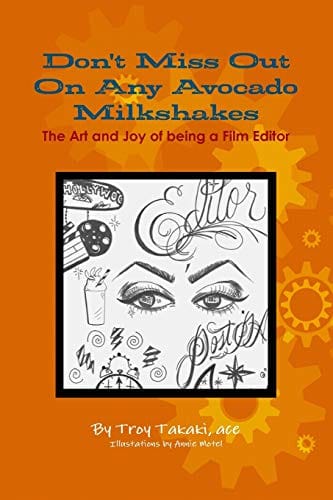
What book has helped you the most over your career?
AA: Make the Cut by Lori Jane Coleman & Diana Friedberg, and Don’t Miss Out On Any Avocado Milkshakes by Troy Takaki.
I read Make The Cut when I was applying for the ACE Internship. It helped me create my first resume as an assistant editor & understand my responsibilities.
I was Troy Takaki’s assistant editor on Diary of a Wimpy Kid: The Long Haul. He wrote Don’t Miss Out on Any Avocado Milkshakes while we were in post-production on that film. The book has inspired me about the philosophies of being an editor, mentoring, and the unspoken rules of editorial cutting rooms.
TD: I’m not sure if this is cliche or pretentious, but it would have to be Sergei Eisenstein’s Film Form.
I don’t know if they still teach that in college but in my day it was one of the first things you read in film classes. He pretty much invented editing and showed how different types of cuts work.
But other than that, I don’t think I’ve ever read another book about editing! So by default, that one wins.
And your parting piece of advice?
AA: Anyone can learn to push the buttons on a new editing software, but it’s harder to teach someone to care about the craft of editing.
If someone is passionate about our craft, that will shine through above the rest.
When I’m hiring an assistant editor, I’m looking for a creative collaborator and someone who is passionate about the story.
Let that be the guiding light for a career, and it will be a success.
TD: Don’t get too much into editing!
I think you need literature, music, art, and journalism to really understand storytelling, rhythm and what works visually. We need to know all of these to edit well.
I feel like editors who geek out too much on editing can really lose sight of the bigger picture of what works in putting together a show or film.
Huge thanks to Yann, Matthew, Todd, and Amelia for taking the time to answer these questions!
So remember, pace is everything and cut daily.
3 from the Archive
Enjoy reading Cut/daily? There are hundreds more insights like these waiting for you when you upgrade to lifetime access to the entire Archive for only $49.
- #181 - Why Comedy Editors Get Paid More...
- #217 - Best Practices for VFX Workflows
- #398 - How to Crawl Inside The Mind of a Director
Read more, learn more, earn more, do more.
Save money in Post with Cut/daily!
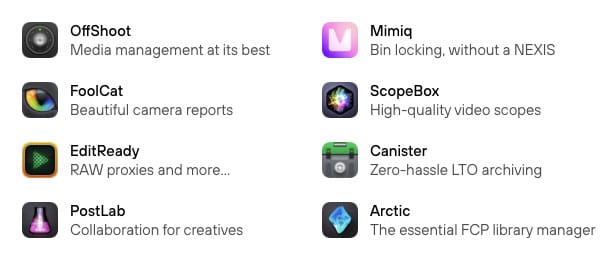
Hedge makes joyful software. I say that because every time I use Offshoot to safely copy files, it literally brings me joy. It's beautifully designed, easy to use and 100% effective.
What more do you want?
PostLab, EditReady, and ScopeBox are also essential items in my Post-Production arsenal. They will serve you well.
Save 10% on any product with the exclusive discount code: "jonnyelwyn"
